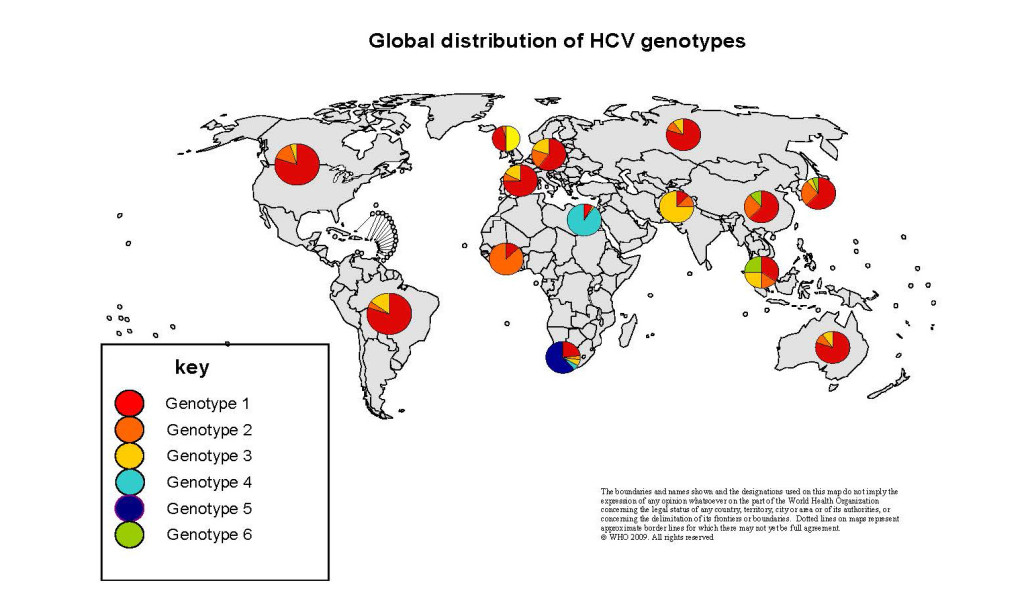This page is an archive. Its content may no longer be accurate and was last updated on the original publication date. It is intended for reference and as a historical record only. For hep C questions, call Help4Hep BC at 1-888-411-7578.
Genotypes (genetic variants) which can affect hepatitis C treatment are of two kinds, HUMAN and VIRAL:
- Human genotypes are HUMAN genetic variants. For example, you inherit genes from your parents for characteristics such as eye and hair colouring, or for having various diseases such as hemophilia or hemochromatosis. Some human genes can also affect how hepatitis C virus and hepatitis C treatments will affect an individual’s body.
- HCV genotypes are VIRAL genetic variants of the hepatitis C VIRUS. There are 6 main HCV genotypes (1-6).** Each of these has subtypes as well. Genotypes 1-3 are the most common in the Americas, Europe, and Australia. Genotype 4 is very common in North Africa, Genotype 5 is prevalent in South Africa, and some Genotype 6 is seen in Asia (extremely rare in other parts of the world, except among Asian immigrants). The most common types of hepatitis C in the world are: 1a, 1b, 1c, 2a, 2b, 2c, 3a, 3b, 4, and 5. Though genotype testing is becoming less important as “pan-genotypic” treatments (treatments which successfully cure any genotype) are widely available, it can still affect which treatment you will get and how long you will need to be on it.
** Update (Dec 2017): According to a study presented at AASLD 2017, there are now 8 known genotypes and 84 subtypes.
MAP:
(1) Global Distribution of HCV Genotypes – Click here for enlarged version.
Genetic Factors in HCV Treatment
Physicians have noted that people of different ethnic and racial groups seemed to respond differently to HCV in terms of how frequently their bodies were able to clear the virus spontaneously, or how well they responded to interferon/ribavirin treatment.
- This difference was irrespective of lifestyle, gender or age. Then scientists discovered that individuals with a particular gene variation, called the “IL28B allele,” respond differently to HCV. Finally they understood that the different ethnic and racial responses to HCV they’d observed could be explained by the different % of the “IL28B allele” within each of the various groups.
- As shown in the chart below, East Asians have the greatest % of the most positive IL28B allele, African Americans have the least %, while Caucasians and Hispanics are somewhere in the middle. This is a direct predictor of each racial group’s response to interferon/ribavirin treatment.
- While the IL28B allele was a strong predictor of how an individual would respond to treatment with the old interferon/ribavirin treatment, we don’t usually test for it any more with the new DAAs. There may be other alleles that affect success of the new treatments. Stay tuned.


